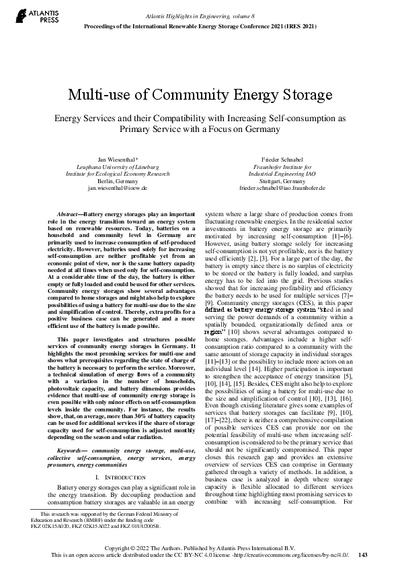Multi-use of Community Energy Storage Energy Services and their Compatibility with Increasing Self-consumption as Primary Service with a Focus on Germany
Battery energy storages play an important role in the energy transition toward an energy system based on renewable resources. Today, batteries on a household and community level in Germany are primarily used to increase consumption of self-produced electricity. However, batteries used solely for increasing self-consumption are neither profitable yet from an economic point of view, nor is the same battery capacity needed at all times when used only for self-consumption. At a considerable time of the day, the battery is either empty or fully loaded and could be used for other services. Community energy storages show several advantages compared to home storages and might also help to explore possibilities of using a battery for multi-use due to the size and simplification of control. Thereby, extra profits for a positive business case can be generated and a more efficient use of the battery is made possible.
This paper investigates and structures possible services of community energy storages in Germany. It highlights the most promising services for multi-use and shows what prerequisites regarding the state of charge of the battery is necessary to perform the service. Moreover, a technical simulation of energy flows of a community with a variation in the number of households, photovoltaic capacity, and battery dimensions provides evidence that multi-use of community energy storage is even possible with only minor effects on self-consumption levels inside the community. For instance, the results show, that, on average, more than 30% of battery capacity can be used for additional services if the share of storage capacity used for self-consumption is adjusted monthly depending on the season and solar radiation.



